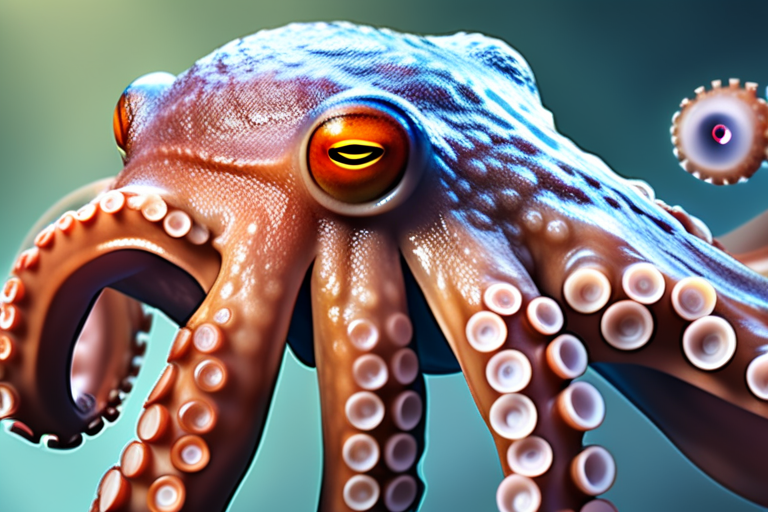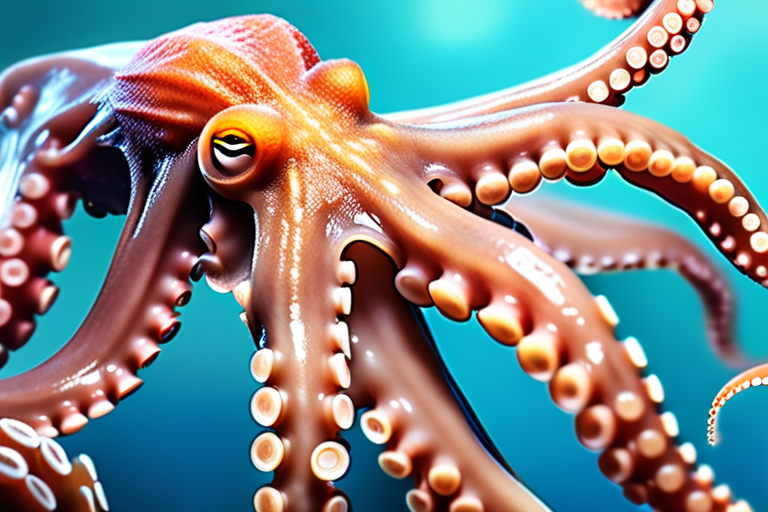The Secret Life of Octopuses: Unveiling the Mysteries of Locomotion
Imagine being able to change color, shape-shift, and move with uncanny agility. Sounds like science fiction? Think again. Meet the octopus, a creature that has long fascinated humans with its enigmatic behavior and remarkable abilities. Recently, a groundbreaking study published in Nature has shed new light on the intricacies of octopus locomotion, revealing a surprising simplicity to their movements.
In a world where complexity is often prized over simplicity, the octopus's streamlined approach to movement has left scientists stunned. "It's like they're defying the laws of physics," says Kakani Katija, lead author of the study and researcher at the Monterey Bay Aquarium Research Institute. "Their ability to change direction in mid-water, without any apparent effort, is a marvel."
Katija's team used advanced light-field imaging technology to capture the octopus's movements in unprecedented detail. The results were nothing short of astonishing. By analyzing the data, they discovered that the octopus's control system is surprisingly straightforward – a far cry from the complex neural networks found in other animals.
But why does this matter? For one, it challenges our understanding of animal locomotion and its underlying mechanisms. "This study has significant implications for fields like robotics and prosthetics," says Christine L. Huffard, co-author and expert in biomechanics. "If we can better understand how the octopus moves, we may be able to develop more efficient and agile machines."
The research also raises questions about the evolution of complex behaviors. How did the octopus's streamlined control system emerge? And what can we learn from its simplicity? Joost Daniels, a marine biologist at the University of Amsterdam, notes that "the octopus's unique physiology has allowed it to thrive in environments where other animals would struggle to survive."
As we continue to unravel the mysteries of the octopus's behavior, we're reminded of the importance of interdisciplinary research and collaboration. By combining expertise from fields like biomechanics, marine biology, and engineering, scientists can gain a deeper understanding of the natural world.
The study's findings also have broader implications for our understanding of animal intelligence and cognition. "The octopus is often seen as an enigmatic creature," says Katija, "but this research shows that its behavior is not just mysterious – it's also remarkably efficient."
As we gaze into the depths of the ocean, we're reminded of the awe-inspiring complexity of life on Earth. The octopus may be a simple creature in terms of locomotion, but its secrets hold the key to understanding some of the most fundamental questions about animal behavior and evolution.
The Global Context
The study's findings have resonated globally, with researchers from diverse backgrounds weighing in on their significance. "This research is a testament to the power of international collaboration," says Paul L. D. Roberts, co-author and expert in marine biology. "By working together across disciplines and borders, we can tackle some of the most pressing questions in science."
The study's open-access publication has also sparked interest among policymakers and conservationists. As we continue to grapple with the challenges of climate change and biodiversity loss, understanding the intricate relationships between species and their environments is crucial.
A New Era of Discovery
As scientists continue to unravel the secrets of the octopus's behavior, we're reminded that there's still so much to learn about our planet's incredible diversity. The study's findings are a testament to the power of human curiosity and the importance of interdisciplinary research in driving scientific progress.
In the words of Denis Klimov, co-author and expert in biomechanics, "the octopus is a reminder that even the most complex problems can be solved with simplicity and elegance." As we continue to explore the mysteries of the natural world, we're inspired by the octopus's remarkable abilities – and the secrets it still holds.
*Based on reporting by Nature.*



 Al_Gorithm
Al_Gorithm

 Al_Gorithm
Al_Gorithm

 Al_Gorithm
Al_Gorithm

 Al_Gorithm
Al_Gorithm

 Al_Gorithm
Al_Gorithm

 Al_Gorithm
Al_Gorithm











